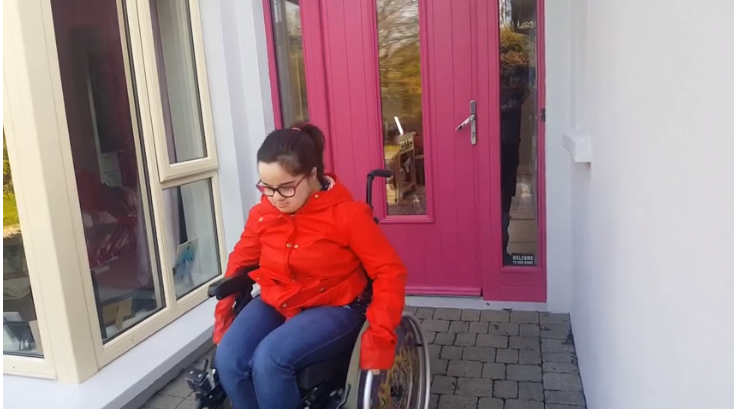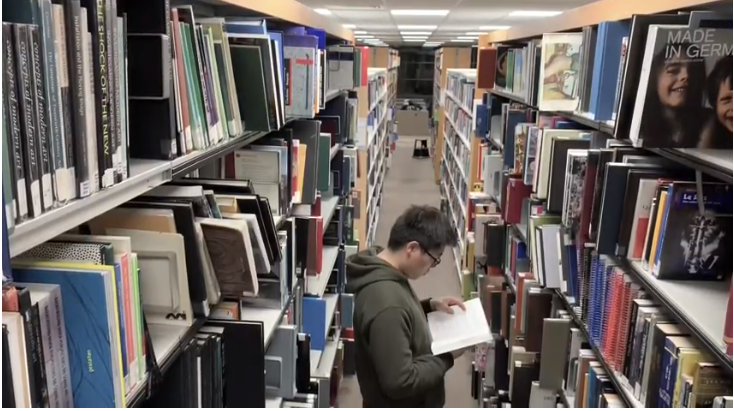-
Courses

Courses
Choosing a course is one of the most important decisions you'll ever make! View our courses and see what our students and lecturers have to say about the courses you are interested in at the links below.
-
University Life

University Life
Each year more than 4,000 choose University of Galway as their University of choice. Find out what life at University of Galway is all about here.
-
About University of Galway

About University of Galway
Since 1845, University of Galway has been sharing the highest quality teaching and research with Ireland and the world. Find out what makes our University so special – from our distinguished history to the latest news and campus developments.
-
Colleges & Schools

Colleges & Schools
University of Galway has earned international recognition as a research-led university with a commitment to top quality teaching across a range of key areas of expertise.
-
Research & Innovation

Research & Innovation
University of Galway’s vibrant research community take on some of the most pressing challenges of our times.
-
Business & Industry

Guiding Breakthrough Research at University of Galway
We explore and facilitate commercial opportunities for the research community at University of Galway, as well as facilitating industry partnership.
-
Alumni & Friends

Alumni & Friends
There are 128,000 University of Galway alumni worldwide. Stay connected to your alumni community! Join our social networks and update your details online.
-
Community Engagement

Community Engagement
At University of Galway, we believe that the best learning takes place when you apply what you learn in a real world context. That's why many of our courses include work placements or community projects.
Public Advocacy and Activism (MA/PDip)
Course Overview
The MA in Public Advocacy and Activism is an interdisciplinary programme that combines training in the practical skills of advocacy and activism with an exploration of the theories and concepts that inform these fields. No other programme in Ireland offers students the opportunity to acquire skills and training in such a breadth of disciplines, including communications, human rights, and sociology. By drawing on the expertise of scholars and practitioners across these fields, the MA provides the skills crucial for those who wish to work in organizations that seek to shift attitudes and initiate change, including those working in community organisations, international relations, development, labour, rights, health and the environment.
Scholarships available
Find out about our Postgraduate Scholarships here.
Applications and Selections
Applications are made online via the University of Galway Postgraduate Applications System.
Who Teaches this Course
Requirements and Assessment
Assessment on the programme is designed to develop students’ writing and presentation skills, as well as their ability to undertake independent research. Assignments include a combination of essays, presentations, reports and projects, including a short film-making exercise. Students practice and demonstrate their research skills undertaking a 15,000 word minor dissertation or portfolio, which is submitted in August.
Key Facts
Entry Requirements
NQAI Level 8 degree or equivalent H2.2. GPA 3.0 or international qualification. IELTS score of 6.5 or equivalent if applicable. Students who do not meet the Honours degree requirement but have a Level 7 (Merit 2) degree may be admitted to the PDip course with the possibility of progressing to the MA if they receive a minimum of 60% in their course work during the year.
(Please visit this website for detail of any supporting documents that may be required when applying to this course.)
Additional Requirements
Recognition of Prior Learning (RPL)
Candidates who do not meet the minimum entry criteria but have relevant work experience are encouraged to contact the programme director to discuss eligibility under the Recognition of Prior Learning (RPL) process. Such candidates may be invited to take a Qualifying Exam to ascertain their suitability for the programme.
In other circumstances, those with a lower degree grade, or who have relevant work experience, may be offered a place on the Postgraduate Diploma (with the possibility of transferring to the MA on achieving a 60% average in the taught modules).
Further information is available from the programme director.
Duration
1 year, full-time
2 years, part-time
Next start date
September 2024
A Level Grades ()
Average intake
15
QQI/FET FETAC Entry Routes
Closing Date
You are advised to apply early, which may result in an early offer; see the offer round dates
NFQ level
Mode of study
ECTS weighting
MA—90, PDip—60
Award
CAO
Course code
MA-PAA
Course Outline
Across the wide-ranging syllabus, there is a focus on both the socio-political environment in which advocates and campaigners for change must operate and the tools and techniques by which change can be achieved. Students use actual campaigns as the basis of their course work analysis, so that critiques and debates are firmly based in the real world of current events. In addition to gaining a theoretical understanding of how change may be effected, students learn how to develop and run successful campaigns, how to interact with large organisations, and how to influence public opinion on important issues.
The course may be taken as a full-time degree taken over a twelve-month period (September to August) OR as a part-time degree taken over a twenty-four month period. The year is divided into two teaching semesters, from September to December and from January to April. The full-time programme comprises three core taught modules and a choice of 3 out of 5 electives, as well as a research methods seminar over two 12-week semesters. Students may choose a service learning placement as one of their electives. The minor dissertation or portfolio (30 ECTS) is completed over the summer and submitted in August.
Core modules:
- The Theory and Practice of Advocacy and Activism (10 ECTS)
- Communications Media and Marketing for Advocates (10 ECTS)
- Short Filmmaking for Advocacy (10 ECTS)
Elective Modules (3 out of 7 to be selected) include:
- Service Learning Placement (10 ECTS)
- Human Rights (10 ECTS)
- Film, Politics, and Colonialism (10 ECTS)
- The Social and Political Context of Advocacy (10 ECTS)
- Media for Social Change (10 ECTS)
- Investigating Miscarriages of Justice (10 ECTS)
- Humanitarian Communication (10 ECTS)
Click here for modules detail (full-time).
Click here for modules detail (part-time).
Why Choose This Course?
Career Opportunities
Why choose this course?
This imaginative course provides an opportunity for experienced advocates for social change, as well as those interested in working in the area, to achieve a specialist qualification in their field of practice. Due to its interdisciplinary nature, the programme brings together a group of students from diverse backgrounds but with shared interests and ambitions. Discussion-based classes allow students to engage with ideas and topics in a dynamic learning process that increases understanding and clarifies opinions. The programme includes an optional work placement, in which students gain the opportunity to put their developing skills into practice. In the first semester, students make short videos on advocacy topics of their choice. You will also have all the opportunities which come from studying at one of the world’s top universities, including access to a range of seminars and high-profile guest speakers.
Past visiting speakers have included practitioners and activists from organisations such as Comhlámh, Trócaire, UNOCHA, and the Migrant Rights Council of Ireland; campaigners including Sunny Jacobs and Peter Pringle; and filmmakers like Emily James, Risteard O'Domhnaill, and Dearbhla Glynn, who have made documentaries on topics of human rights and social concerns.
Career opportunities
Graduates have gone on to pursue a range of careers in lobbying, campaigning, advocacy, education and humanitarian roles in organisations such as the SOAR Foundation, PETA, UNOCHA, GOAL Ireland, ADAPT Domestic Abuse Services, Amnesty International (Irish section), Cancer Care West, COPE Galway and the National Advocacy Service, the National Youth Council of Ireland, Trócaire, and Spunout. Others have continued in higher education, with a number of PhDs completed or underway. It should be noted that while the MA is structured toward careers in the not-for-profit sector, many of the skills gained during the year, for example those in research methods, analysis, media and communications, are transferable to any sector.
Who’s Suited to This Course
Learning Outcomes
Transferable Skills Employers Value
Work Placement
Study Abroad
Related Student Organisations
Course Fees
Fees: EU
Fees: Tuition
Fees: Student levy
Fees: Non EU
Student levy €140—payable by all students and is not covered by SUSI. Further detail here.
Find out More
Dr Fiona Bateman
T: +353 91 495 918
E: fiona.bateman@universityofgalway.ie
Find us on Facebook
Quick Links
- Accommodation Office
- International Students
- Postgraduate Funding—Scholarships
- Student Support and Resources
News Items
- Yvonne Fahy
- STAND Placement Article by Maximiliana Mtenga
What Our Students Say

Kevin Gadsey | Public Advocacy & Activism
I came to Ireland wanting to know how to change the world for people with disabilities. A year later, it was I who had been transformed because of the lecturers’ insights and the projects I chose to tackle. I learned about human nature, our strengths and weaknesses, and how they help and hinder any campaign. I now understand why parts of the world are struggling, what/who is oppressing them, and the dynamics of the relationship between the oppressed and the oppressors. I now understand tried and true methods and strategies to motivate oppressed peoples to create and sustain their own social movements.

Emmet Sheerin | Public Advocacy & Activism
The MA in Public Advocacy and Activism certainly informed my experience working as a human rights observer in the West Bank, giving me a particular confidence in my engagement with Israeli and Palestinian peace activists. Furthermore, the course provided me with a valuable understanding of how change can be influenced at a local, national and international level.

Sarah Clancy | Public Advocacy & Activism
One of the most challenging aspects of the course was that it forced us all to question our own motivation for seeking social change. I would highly recommend this Masters as an eye-opening stimulus to an awareness which will benefit the student in practically any field of work or further study.

Lyndia Peters | Public Advocacy & Activism
One of the best parts of the MA in Public Advocacy and Activism was the way it fitted into my academic, career and personal goals. I aim to be a vital part of my community, to contribute to its health and success and to empower others to do the same – I know this course was an important step on that journey.



















